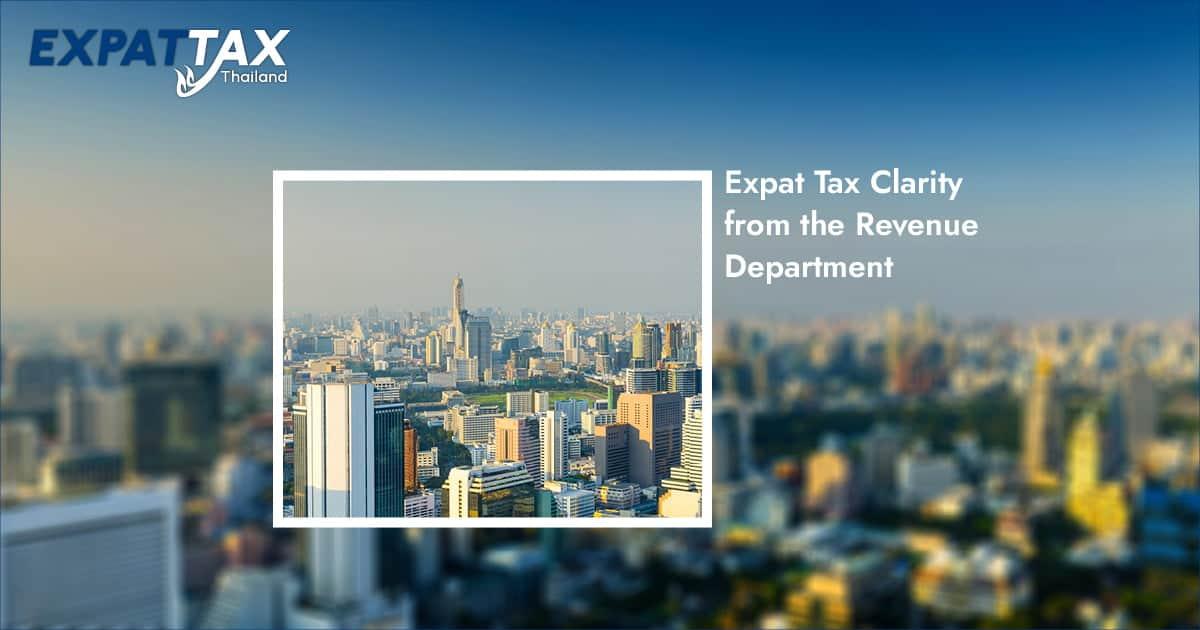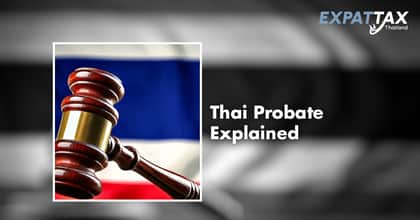
Last month, the Swiss Embassy in Bangkok organised a Q&A session between His Excellency Mr. Pedro Zwahlen, Ambassador of Switzerland, and Khun Nathanan Junprateepchai, an expert from the Legal Affairs Division of Thailand’s Revenue Department.
The English language interview provides increased clarity for expatriates on questions relating to the changes in tax rules announced last year and taking effect from 1 January 2024.
You can watch the entire interview below, which includes a summary of the issues discussed and is produced below.

Summary of Thailand tax Q&A for Expats
The key points discussed are as follows:
- Introduction of New Tax Regime: The Thai Revenue Department announced changes affecting foreign-sourced income brought into Thailand. The changes aim to ensure fairness by taxing foreign income brought into Thailand from January 1, 2024.
- Tax Residency and Impact on Foreign Residents: Tax residency is determined by staying in Thailand for over 180 days in a tax year. The new regime impacts foreign residents, particularly retirees, as pensions brought into Thailand after January 1, 2024, will be subject to tax.
- Double Taxation Agreements: The tax changes align with existing double taxation agreements, such as between Thailand and Switzerland. Pensions paid by the Swiss government will only be taxed in Switzerland, while other pensions will be taxed in Thailand.
- Documentation and Tax Filing: No specific forms are required for proving income sources, but government-issued documents are important. Documents from abroad need not be in Thai if they are in English, but other languages require certified translations.
- Tax Deductions and Exemptions: Various expenses, including healthcare and charitable donations, are deductible. The tax system offers specific deductions for the elderly (age 65 and above) and allows for the deduction of support or gifts under certain conditions.
- Online Portal and Language Support: An online portal for tax filing exists, but it is currently available only in Thai. Efforts to include English support and provide detailed guidelines and Q&A in English were discussed.
- Assistance and Resources: Taxpayers can seek clarification and assistance through the Revenue Department’s call center, website, or by visiting local branch offices. A call center (1161) is available for support in English.
- Future Improvements and Accessibility: The discussion highlighted the need for improvements in language support and accessibility of tax-related resources for foreigners, with promises to provide more information in English and to consider extending filing deadlines or providing online extension options similar to the Swiss system.
This summary captures the essence of the dialogue and the commitment from Thai Revenue Department representatives to address concerns, clarify the new tax regulations, and improve accessibility for foreign residents, especially Swiss nationals living in Thailand.
Learn how to navigate the Thai tax system with our step-by-step guide.


